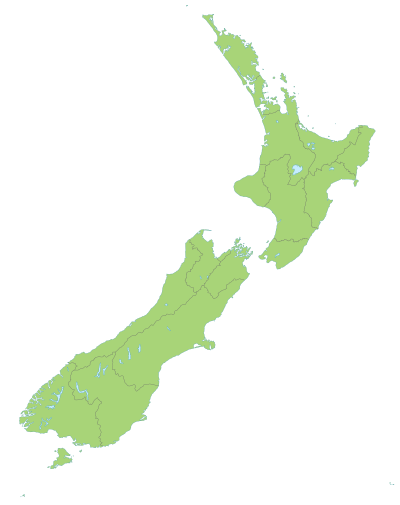
A | B | C | D | E | F | G | H | CH | I | J | K | L | M | N | O | P | Q | R | S | T | U | V | W | X | Y | Z | 0 | 1 | 2 | 3 | 4 | 5 | 6 | 7 | 8 | 9
 | |
| Founded | 2004 |
|---|---|
| Folded | 2021 |
| Country | New Zealand |
| Confederation | OFC |
| Number of teams | 8 |
| Level on pyramid | 1 |
| Domestic cup(s) | White Ribbon Cup |
| International cup(s) | OFC Champions League |
| Last champions | Team Wellington (3rd title) (2020–21) |
| Current premiers | Auckland City (12th title) |
| Most championships | Auckland City (8 titles) |
| Most premierships | Auckland City (12 titles) |
| Most appearances | Jake Butler (257 appearances) |
| Top goalscorer | Emiliano Tade (80 goals) |
| TV partners | Sky Sports |
| Website | www |
The New Zealand Football Championship (Māori: Te Whakataetae Whutupaoro a Aotearoa) was a men's association football league at the top of the New Zealand league system. Founded in 2004, the New Zealand Football Championship was the successor to a myriad of short-lived football leagues in the country, including the National Soccer League, the National Summer Soccer League and the New Zealand Superclub League. The league was contested by ten teams in a franchise system. For sponsorship reasons, the competition was known as the ISPS Handa Men's Premiership. From the 2021 season, it was replaced by the New Zealand National League.[1]
The seasons used to run from October through to April, and consist of an eighteen-round regular season followed by a playoff series involving the four highest-placed teams, culminating in a Grand Final. Each season, two clubs would gain qualification to the OFC Champions League, the continental competition for the Oceania region. The league does not use a system of promotion and relegation.
Auckland City were the most successful side since the competition's inception, with twelve premierships and seven championship titles. A youth competition, called the National Youth League, ran parallel to the regular season from October to December – the final champions were also Auckland City, winning the final season of the competition in 2019.
Competition format
There were two stages to the competition: the regular season, in which each team played each other twice for a total of 18 games; and the playoffs, in which the top four teams in the league play knockout matches in order to determine the champion.[2]
Regular season
Each team played each other team twice: once at home, and once away. Teams score three points for a win, one for a draw, and no points for a loss. At the end of the regular season, the top four teams progress to the playoffs.
For the first four seasons, the regular season had the teams play each other three times. This was changed to a home-and-away system in 2008, due to financial difficulties affecting some clubs.
Playoffs
The playoffs consist of three matches; there were two semi-final matches, and the winners of each progress to a one-match Grand Final.
In the inaugural season, three teams took part in the playoffs. The Minor Premier (the winner of the regular season) received automatic entry to the grand final as well as hosting rights, while the second and third placed teams played a one-game preliminary final to determine entry to the grand final. The NZFC also experimented with a five team playoff in the 2005–06 season, however, this was discontinued and the league reverted to the three-team playoff system for the 2006–07 and 2007–08 seasons. The league changed to the four-team playoff system in the 2009–10 season.
Qualification to OFC Champions League
Two teams from the NZFC qualified for the OFC Champions League each season: the team that won the regular season (the "Minor Premier") and the team that won the Grand Final (the "Champion"). If the same team wins both the Minor Premiership and the Championship, the second Champions League spot is granted to the regular season runner-up. This occurred on numerous occasions; the first instance being in 2006 when Auckland City (premiers and champions) and YoungHeart Manawatu qualified, YoungHeart Manawatu not making it to the Grand Final.
No promotion and relegation existed, making it a closed league similar to the A-League in Australia and Major League Soccer in the United States.
History
Establishment in 2004 to present
The New Zealand Football Championship was created as a replacement to the former New Zealand National Soccer League, a tournament involving clubs from the regional governing bodies of New Zealand Football. The NZFC was to be run as a summer league involving new clubs created solely for the new competition, with these new clubs being run jointly by existing winter clubs. The only exception to this was Napier City Rovers, whose summer club would be rebranded Hawke's Bay United during the second season, to be operated jointly by other clubs in the Hawke's Bay region.
Eleven groups bid for franchises, with the successful bids being announced on 7 April 2004 as Auckland City, Canterbury United, Napier City Rovers, Otago United, Team Wellington, Waikato FC, Waitakere United and YoungHeart Manawatu, with Olé Madrids, East Auckland and Team Bay of Plenty being excluded. Unhappy at their exclusion, the Olé Madrids bid team took New Zealand Soccer to court, suing for damages and demanding inclusion in the competition, claiming that, whilst they met NZ Soccer's criteria for inclusion, other successful bids did not. The case was dropped by the Madrids team eight days before the commencement of the first NZFC season.[3] The Olé Academy, previously having had a relationship with Team Wellington, currently holds an exclusive partnership with current league side Eastern Suburbs.[4][5] East Auckland also considered legal action, however this was not pursued.[6]
The first match of the competition was on 15 October 2004, with Auckland City defeating Napier City Rovers 3–1 at Park Island, Napier. Auckland City were also crowned the inaugural NZFC champions after defeating Waitakere United 3–2 in the final.
The second season saw Napier City Rovers rebrand and reorganize their NZFC team as Hawke's Bay United, forming an amalgamated franchise with other local clubs. It also saw the first instance of a NZFC team winning the O-League, with Auckland City FC defeating Tahitian team AS Pirae 3–1.
At the conclusion of the 2006–07 season, New Zealand Football granted three-season licence extensions to seven of the eight franchises – all but YoungHeart Manawatu, who had to reapply due to concerns over the club's financial and organisational situation. However, YoungHeart eventually earned reinstatement after beating out four rival bids – one based in Gisborne, one from North Shore City, and two from Manukau. Olé Madrids also applied for the licence; however they withdrew early.[7]
On 2 September 2010, New Zealand Football announced a five-year sponsorship agreement with ASB Bank resulting in the rebranding of the New Zealand Football Championship to the ASB Premiership.[8]
In 2013, after a review of the competition by the ASB Premiership review committee, YoungHeart Manawatu was dropped from the competition after finishing last in the previous three seasons. New Zealand Football also confirmed that a team composed of New Zealand players born on or after 1 January 1995 would take Manawatu's place in the Premiership for at least two seasons. The addition of the team – to be known as Wanderers SC – was to provide adequate preparation for New Zealand's U-20 players for the upcoming 2015 FIFA U-20 World Cup which will be hosted by New Zealand.[9] Much confusion surrounded the initials "SC" in the Wanderers' name, as no official explanation was given as to what they stood for. It wasn't until after their first match that coach Darren Bazeley finally revealed that "SC" stood for "Special Club", saying "it acknowledges this team has arisen out of a special situation and was specially formed for the purpose."[10]
The 2014–15 season saw the Premiership expand to nine teams for the first time in its history. Wellington Phoenix Reserves was added to the competition to provide game time for the members of the Phoenix squad who are not playing frequently for the first team in the A-League. Restrictions were also put in place for all clubs requiring that at least 50% of match day squads are players who are eligible to play for the All Whites.[11]
After 11 full seasons, only Auckland City and Waitakere United have been crowned Premiers or Champions, with Auckland City adding their sixth premiership and sixth title in the 2014–15 season. This trend was bucked, however, in the twelfth season of the competition, as Team Wellington defeated Auckland City 4–2 after extra time in the final.[12] The 2018-19 saw Eastern Suburbs crowned as champions for the first time, becoming the first club to win the NZFC and the New Zealand National Soccer League.
2016 expansion
In December 2015 it was announced that the league would be expanding to 10 teams for the 2016–17 season with Eastern Suburbs from Auckland, Hamilton Wanderers from Hamilton, and Tasman United from Nelson joining the league, while WaiBop United would exit the competition.[13]
Rebrandings
In September 2016, it was announced that the expanded league would be rebranded as the Stirling Sports Premiership.[14]
In March 2017, it was announced that the league would be rebranded as the ISPS Handa Premiership, due to a three-year sponsorship deal with ISPS Handa.[15]
National League Championship
In March 2021, New Zealand Football announced a change to the structure of both the premiership and the top regional leagues around the country. The four top regional leagues (NRFL Premier, Central Premier League, Mainland Premier League and the FootballSouth Premier League) would be formed into the Northern League, Central League, and the Southern League. These leagues would allow local clubs to qualify for the premiership season (now known as the National League Championship), with the top 4 teams from the Northern League, the top 3 teams from the Central League, and the top 2 teams from the Southern League making up the competition, alongside the Wellington Phoenix Reserve side. All teams that qualify plus the Phoenix Reserves, would then play a single round-robin competition between September and December.[1]
Clubs
Until 2019, the New Zealand Football Championship had no promotion or relegation, similar to leagues in Australia and the United States. A promotion and relegation system was to be introduced to the National League in 2020/2021, taking the form of a slot protection model. This model protects one National League slot for each major region of the country to protect geographic representation and maintain a pathway for all clubs into the ISPS Handa Premiership. A slot for the Wellington Phoenix's reserve side was to also be protected. Promotion and relegation were to be decided every 4 years.
Current clubs
| Team | City, Region | Stadium | Joined | Head Coach |
|---|---|---|---|---|
| Auckland, Auckland | Kiwitea Street | 2004 | ||
| Christchurch, Canterbury | English Park | 2004 | ||
| Auckland, Auckland | Madills Farm | 2016 | ||
| Hamilton, Waikato | Porritt Stadium | 2016 | ||
| Napier, Hawke's Bay | Bluewater Stadium | 2005 | ||
| Wellington, Wellington | David Farrington Park | 2004 | ||
| Whenuapai, Auckland | Fred Taylor Park | 2004 | ||
| Wellington, Wellington | Newtown Park | 2014 |
Former clubs
| Team | City, Region | Joined | Left |
|---|---|---|---|
| Palmerston North, Manawatū-Whanganui | 2004 | 2013 | |
| North Shore, Auckland | 2013 | 2015 | |
| Cambridge, Waikato | 2004 | 2016 | |
| Dunedin, Otago | 2004 | 2020 | |
| Nelson, Nelson | 2016 | 2020 |

